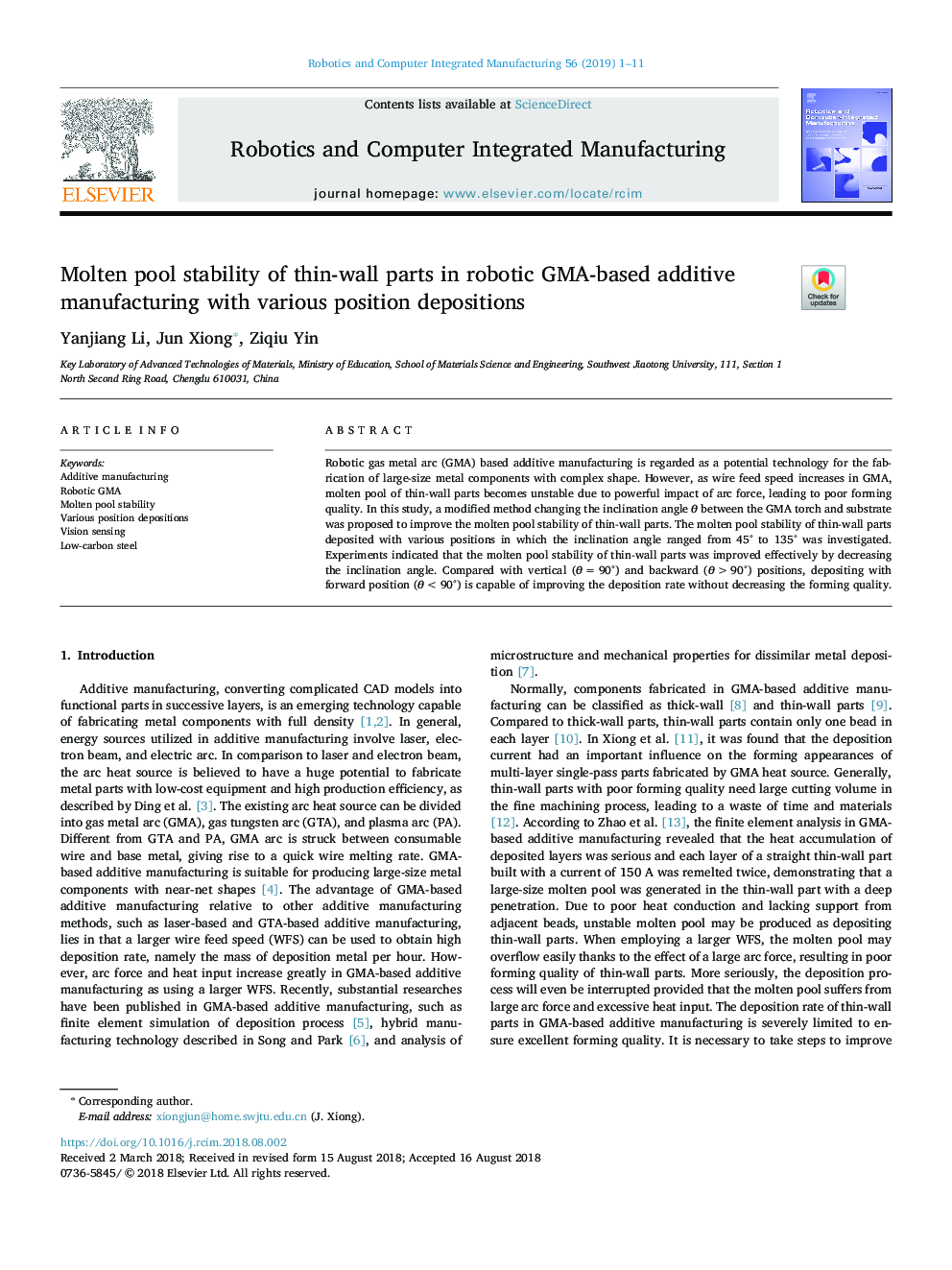| Article ID | Journal | Published Year | Pages | File Type |
|---|---|---|---|---|
| 10139250 | Robotics and Computer-Integrated Manufacturing | 2019 | 11 Pages |
Abstract
Robotic gas metal arc (GMA) based additive manufacturing is regarded as a potential technology for the fabrication of large-size metal components with complex shape. However, as wire feed speed increases in GMA, molten pool of thin-wall parts becomes unstable due to powerful impact of arc force, leading to poor forming quality. In this study, a modified method changing the inclination angle θ between the GMA torch and substrate was proposed to improve the molten pool stability of thin-wall parts. The molten pool stability of thin-wall parts deposited with various positions in which the inclination angle ranged from 45° to 135° was investigated. Experiments indicated that the molten pool stability of thin-wall parts was improved effectively by decreasing the inclination angle. Compared with vertical (θâ¯=â¯90°) and backward (θâ¯>â¯90°) positions, depositing with forward position (θâ¯<â¯90°) is capable of improving the deposition rate without decreasing the forming quality.
Related Topics
Physical Sciences and Engineering
Computer Science
Artificial Intelligence
Authors
Yanjiang Li, Jun Xiong, Ziqiu Yin,
